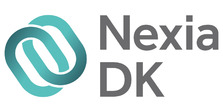Learning the positive lessons of AI adoption
Harnessing new technologies such as artificial intelligence (AI) and robotic process automation (RPA) to make business processes more efficient and resilient is unavoidable in times of disruption.
This is increasingly impacting the accounting world. AI and RPA aren’t just about replacing paper-based processes with digital ones, but more about streamlining internal processes to make them more efficient, transparent and consistent in a way that mirrors human actions but is less fallible.
But while RPA is good at following rules and performing repetitive tasks through deep machine learning, there is still clearly a requirement for human analytical skills to deliver value adding accounting services.
In fact, accountancy professionals are increasingly required to combine creative problem-solving with cognitive skills and assisted intelligence.
Accounting firms are now looking to use technology platforms to enhance their services by redesignating manpower resources to perform more strategic tasks requiring judgment and analytical skills.
With conventional tasks such as preparation of financial statements, account reconciliations, filing and proofreading documents no longer part of the job expectations of Generation Z and Millennials, these activities are now widely undertaken using smart business automation.
Patterns and trends
AI, with deep machine learning capabilities is, for example, able to identify patterns and trends that can be used to monitor regulatory compliance on an ongoing basis, rather than having to conduct a year-end audit.
This has led to a growing trend of collaboration between smaller firms and fintech start-ups to introduce these new technologies into their practices.
Another area where AI is being increasingly adopted is the use of imaging technology to review and compare different drafts of contracts and reports, particularly in the consolidation and preparation of financial statements and in tax computations.
Paradigm shift
The huge paradigm shift being caused by these powerful new technologies in the accounting world, perhaps provides some useful lessons for service businesses in a range of other sectors in the way that they meet the challenges, which cannot be underestimated.
Many Small Medium Enterprises (SMEs) lack the skilled resources and technical expertise to cope with technological change. The challenges of maintaining a suitable talent pool, as well as resistance from internal stakeholders, can also act as key deterrents to AI and RPA.
It is therefore vital for all businesses to set and clearly communicate the strategic direction of the organisation, including its approach to AI and RPA, to address the concerns of staff.
If this is done well, it can go a long way to overcoming any negativity towards technology and instead create a positive outlook that can propel the organisation towards unprecedented levels of business efficiency and growth.
For more information, contact:
Lee Tze Shiong
Nexia TS Public Accounting Corporation, Singapore
T: +65 6597 5804
E: leetzeshiong@nexiats.com.sg
W: www.nexiats.com.sg


